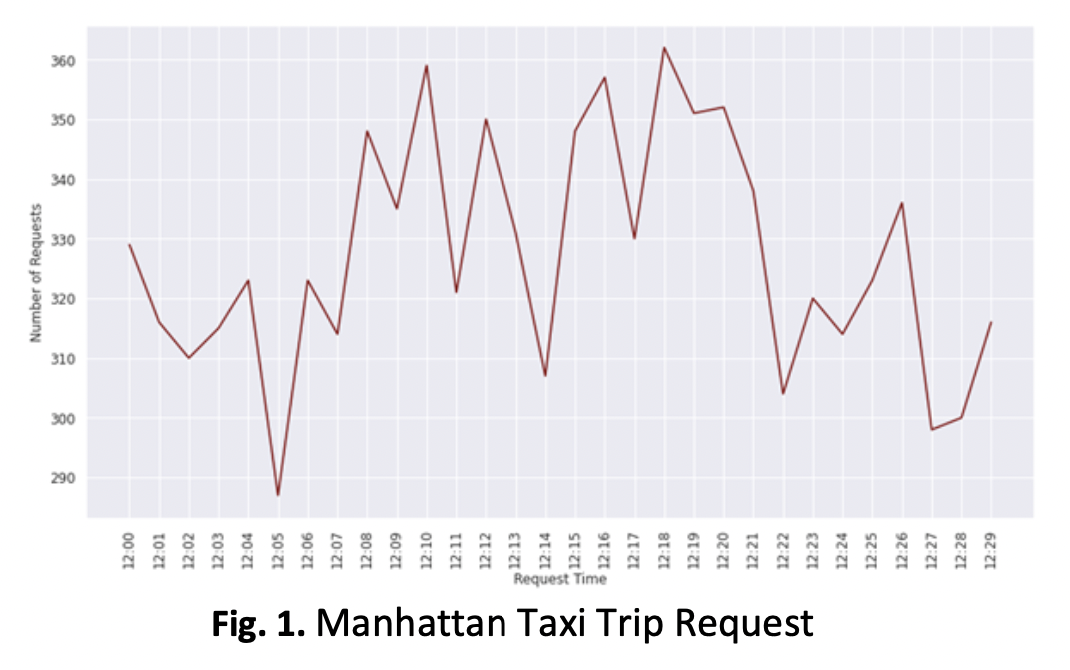Mathematical Modeling on Integrated Vehicle Assignment and Rebalancing in Ride-hailing System with Uncertainty Using Fuzzy Linear Programming
DOI:
https://doi.org/10.37934/araset.42.2.133144Keywords:
ride-hailing, assignment, batch-assignment, rebalancing, integration assignment and rebalancing, fuzzy linear programming, uncertaintyAbstract
The general public frequently uses taxis as local transportation to get from one location to another. Ride-hailing is an innovation in taxi services that lets customers use their smartphones to find drivers, find prices, and submit requests. The two parts of ride-hailing are vehicle assignment and rebalancing. The task of the assignment is to allocate resources as efficiently as possible to fulfil demand. Demand and supply in the area are brought into balance through the rebalancing process. The rebalancing step is frequently carried out independently of the assignment process in ride-hailing pickup systems. However, it can be integrated into a single optimization process to improve system performance. The linear programming approach can integrate assignment and rebalancing. The batch assignment is an assignment algorithm in which each supply and demand is collected within a specific time window. The assignment is done after the vehicles and requests are collected. Fuzzy linear programming is used to deal with environmental uncertainty. Uncertain demand can reduce the reliability of ride-hailing pickup systems in addressing the problem of allocating empty vehicles to areas of high demand. The pickup time may change over time due to traffic conditions. Assignment integration and rebalancing modelling with fuzzy parameters are carried out to obtain a ride-hailing pickup system model that can handle demand uncertainty, pickup travel time, and travel delay times and increase the ride-hailing effectiveness of the pickup system. Numerical simulations were carried out on the assignment and rebalancing integration model without and with uncertainty parameters—numerical simulations based on publicly available taxi travel request data. The model selection for the ride-hailing system can be determined based on the numerical simulation results. This research can potentially advance and expand knowledge, especially in transportation.
Downloads




























